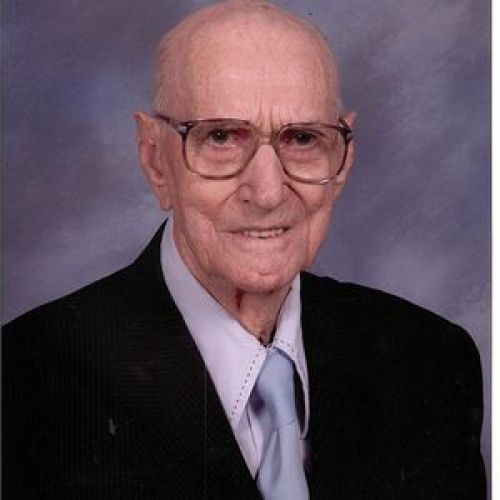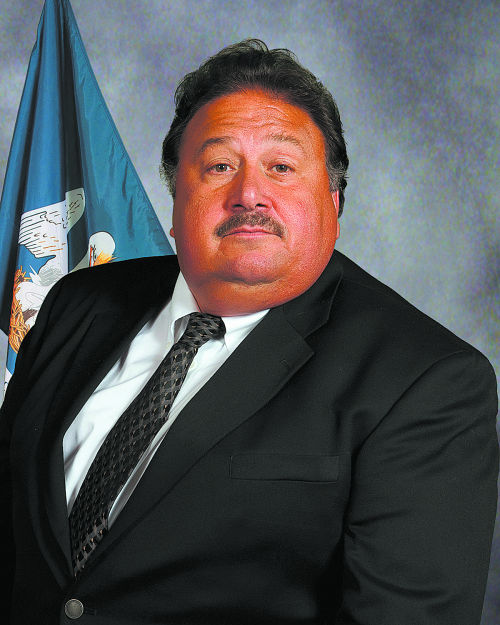
Willie W. Bonvillain
November 20, 2013
Patterson still alive after hard-fought victory
November 27, 2013Nonviolent drug and property crimes are among the reasons officials cited for Louisiana’s increasing incarceration rate.
A new study shows that Louisiana’s citizens could benefit from changes to the way in which convicted criminals are sentenced, reducing a per capita incarceration rate that is the highest in the nation.
State Rep. Gordon Dove, R-Houma, said he had not seen the report, which was released last Tuesday by Reason Foundation, a libertarian organization based in California, along with the Pelican Institute for Public Policy, a Louisiana-based conservative organization, and the Texas Public Policy Foundation. Dove acknowledged, however, Louisiana’s incarceration rate is a major concern and he would be willing to make some changes to minimum mandatory sentences for nonviolent crimes.
“I’d be open to looking at it, but I’d look at each crime independently,” he said. “Even though it’s a non-violent crime, it could harm people financially and mentally. Certain non-violent crimes need to have harsh penalties. For example, breaking into someone’s home causes mental harm. People expect to be safe in their home. And a person keeping the books, robbing a charity – stealing from a charity is a terrible crime.”
According to statistics in the report entitled “Smart on Sentencing, Smart on Crime: An Argument for Reforming Louisiana’s Determinate Sentencing Laws,” Louisiana’s incarceration rate has more than doubled in the past 20 years, costing taxpayers an additional $315 million in expenses.
The report said over the past decades, Louisiana legislators have passed a number of determinate sentencing laws aimed at reducing crimes but these laws have been disproportionately applied to non-violent crimes, making non-violent offenders the majority of inmates to prisons in the state.
Dove said he would consider making changes to the state’s law.
“It’s worth looking into,” he said. “I want to read (the report) and see how they want us to change it.”
Lafourche Parish Sheriff Craig Webre said it’s important to make decisions based upon accurate, research-based studies. He said sometimes legislation is passed following a heinous crime, but new laws can have unintended consequences unless they are carefully evaluated.
“You can never incarcerate yourself out of a problem,” he said. “The thing is making sure the punishment fits the crime.”
Webre said there are two things to consider: resources and public safety.
“When we over-incarcerate people, we stretch resources,” he said, adding under-incarcerating poses a threat to public safety. “Being smart about incarcerating is not only the fiscally responsible thing to do it’s also the morally correct thing to do.”
The sheriff said it’s important to continue to treat the causative factors in crime. For example, DUI/Drug courts are separate courts dedicated to changing the behavior of alcohol/drug-dependent offenders arrested for DUI. The goal of these courts is to attack the root cause of DUI: alcohol and other drug abuse.
“Incarceration is a safety net,” Webre said.
By shrinking its prison population, the study said Louisiana could invest more money in rehabilitation programs.
“It’s important for these offenders to have access to some kind of treatment, where they can get a job, be with their families and become productive members of society,” said Kevin Kane, president of The Pelican Institute for Public Policy.
He said Louisiana would be able to significantly reduce its prison population and reduce recidivism rates by either repealing mandatory minimum sentences for non-violent offenses or enacting a “safety valve” measure such as those in Maine and Rhode Island, which allow judges to bypass mandatory minimum sentences that would fulfill the goals of punishment without adversely affecting public safety.
Although the study mentions Maine and Rhode Island, Kane said many conservative southern states such as Texas, South Carolina and Georgia have also embraced these reforms.
“Texas was one of the first to do this,” he said. “Texas is known as the ultimate conservative law-and-order state. It was building prisons non-stop. Taxpayers said, ‘This is crazy. We can’t keep doing this.’”
Kane said reforming sentencing laws in Texas has led to success.
“They went from building new prisons to closing prisons in Texas,” he said. “It’s reduced the crime rate and governors in other states are exploring it. This is an issue that has great bi-partisan support.”
Kane said many people find it surprising that conservatives are embracing this issue.
“Politicians don’t want to look like they are soft on crime,” he said. “There’s a website called rightoncrime.com that offers conservative governors and legislatures national support for criminal justice reforms.”
Right on Crime is a national initiative led by the Texas Public Policy Foundation, one of the nation’s leading state-based conservative think tanks.
Kane said he believes Louisiana will join Texas and other states to adopt policies proven to both enhance public safety and minimize the cost to taxpayers. He said Rhode Island has reduced its prisons cost by 10 percent.
“Jindal understands this issue,” he said. “He created the sentencing commission, which is reviewing the report’s recommendations. I believe he’ll recommend it for the next legislative session and make it a priority issue.”
As it is now, Kane said judges in Louisiana are forced to hand out unnecessarily long prison sentences to low-level drug offenders, regardless of whether or not the punishment fits the crime because of the state’s mandatory sentencing laws.
“Repealing minimum mandatory sentencing will give judges more latitude,” he said.
Judge David Arceneaux, chief judge of Division D in Terrebonne Parish, said in general, he thought the proposal was a good idea. He said judges should have more discretion in sentencing rather than having a fixed statute as the law cannot be written to anticipate every possibility.
“The discretion should rest with the judge, instead of imposing a cookie-cutter solution,” he said. “That’s why people elect judges. They trust judges to do the right thing in a particular case.”
Arceneaux said minimum mandatory sentencing laws can sometimes create problems. He said in some cases, he cannot sentence offenders to drug court because it’s the prosecutor who decides what criminal charges should be laid.
“It’s a complicated issue revolving around a person’s freedom, the public’s money and victims’ expectations,” he said. “It’s all involving justice.”
Arceneaux questioned whether the public can afford to pay the medical expenses and all of the costs incurred by housing a growing number of non-violent inmates.
“It all leads to money,” he said. “When legislators impose minimum mandatory sentencing, there’s a cost attached to that.”
In order to relieve jail overcrowding, Arceneaux said a number of “good time” rules were passed, which reduce the length of sentences of non-violent offenders. For example, House Bill 1026, which was signed by Gov. Jindal in 2012 and later became Act 159, allowed for certain inmates convicted of a second felony offense to be eligible for parole after serving one-third of the sentence imposed.
“If you give someone a sentence of three or four years, sometimes they’re out a week after sentencing because of these early release rules,” he said.
Arceneaux said this gives parole boards full authority, rather than sentencing judges.
“I say there should be truth in sentencing for the victims and the inmates, too.” he said.
Terrebonne Parish Assistant District Attorney Carlos Lazurus said the DA’s Office cannot comment on any proposed legislation. However, he said non-violent drug offenders are often referred to drug court and given a suspended sentence upon completion of the program.
“It’s not an automatic thing,” he said. “We take things on a case-by-case basis. If an individual is worth salvaging and becoming a productive member of society, then he is helped and given an opportunity.”












